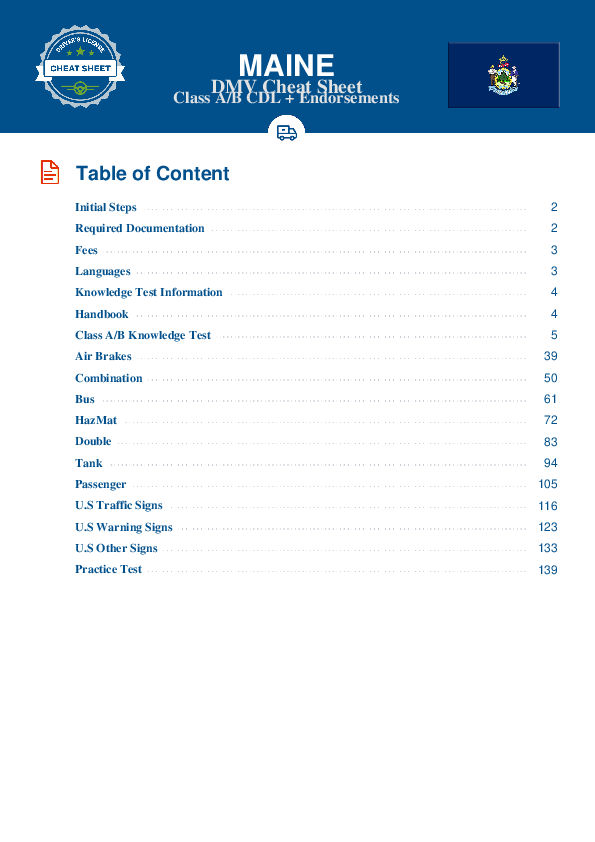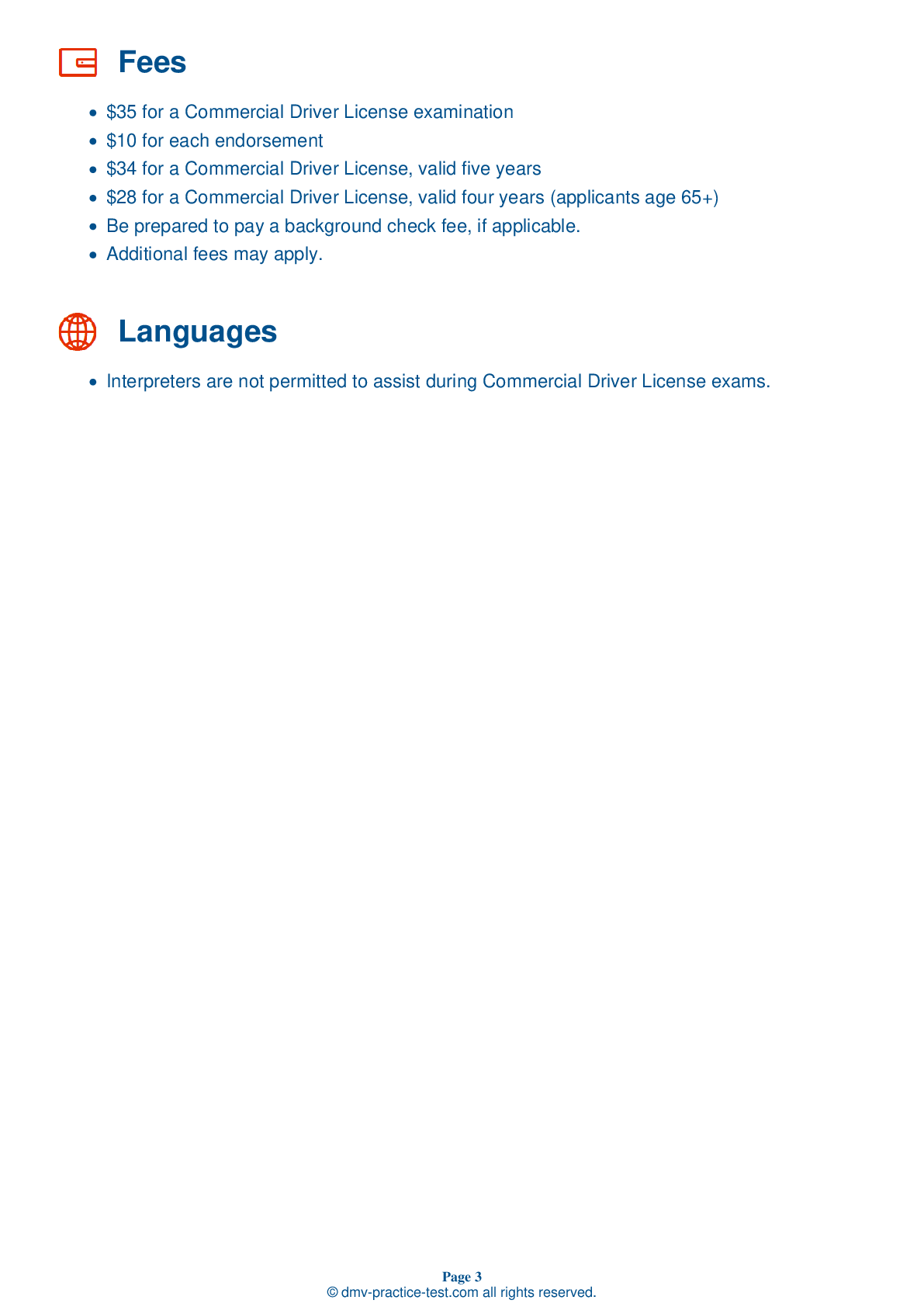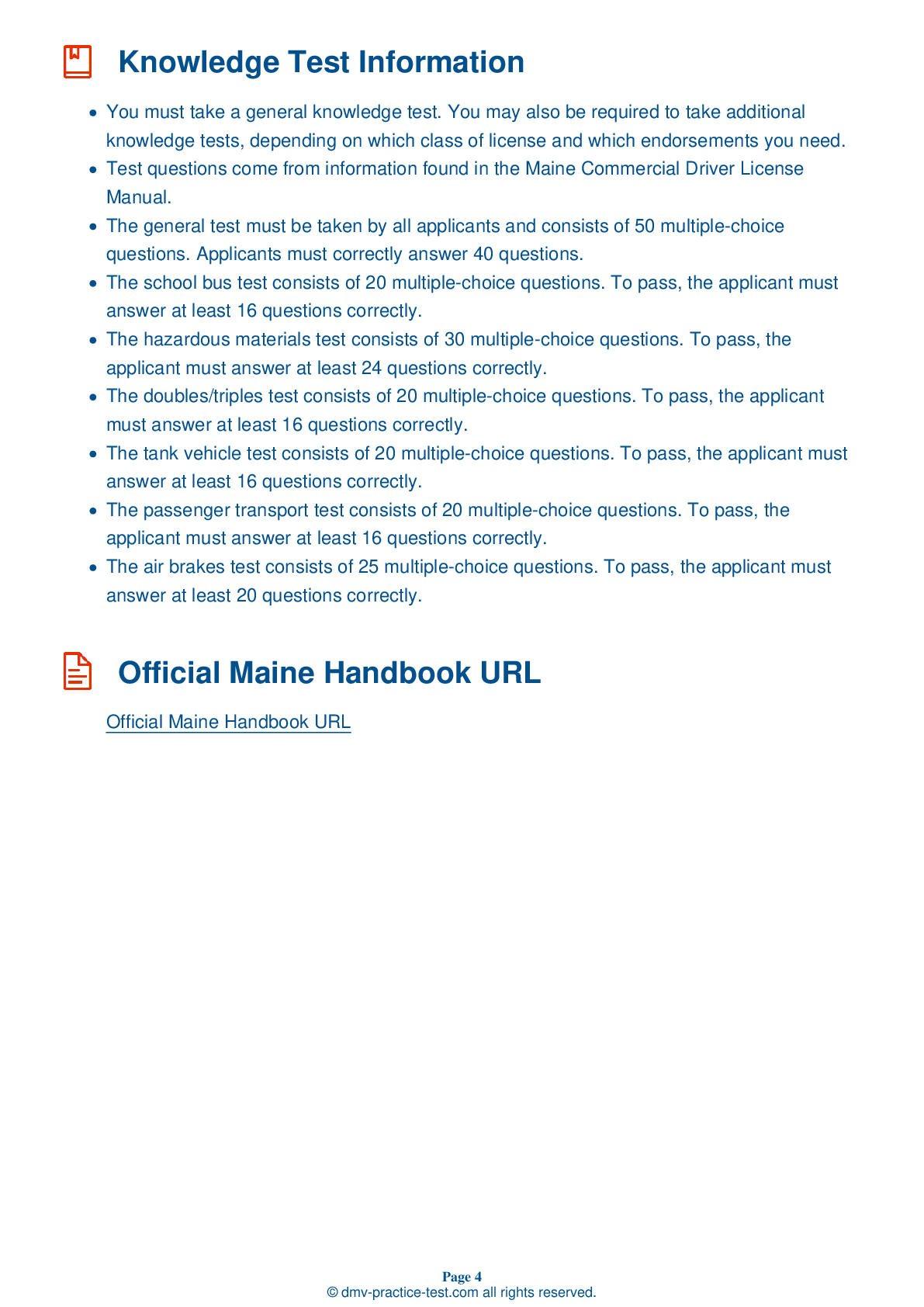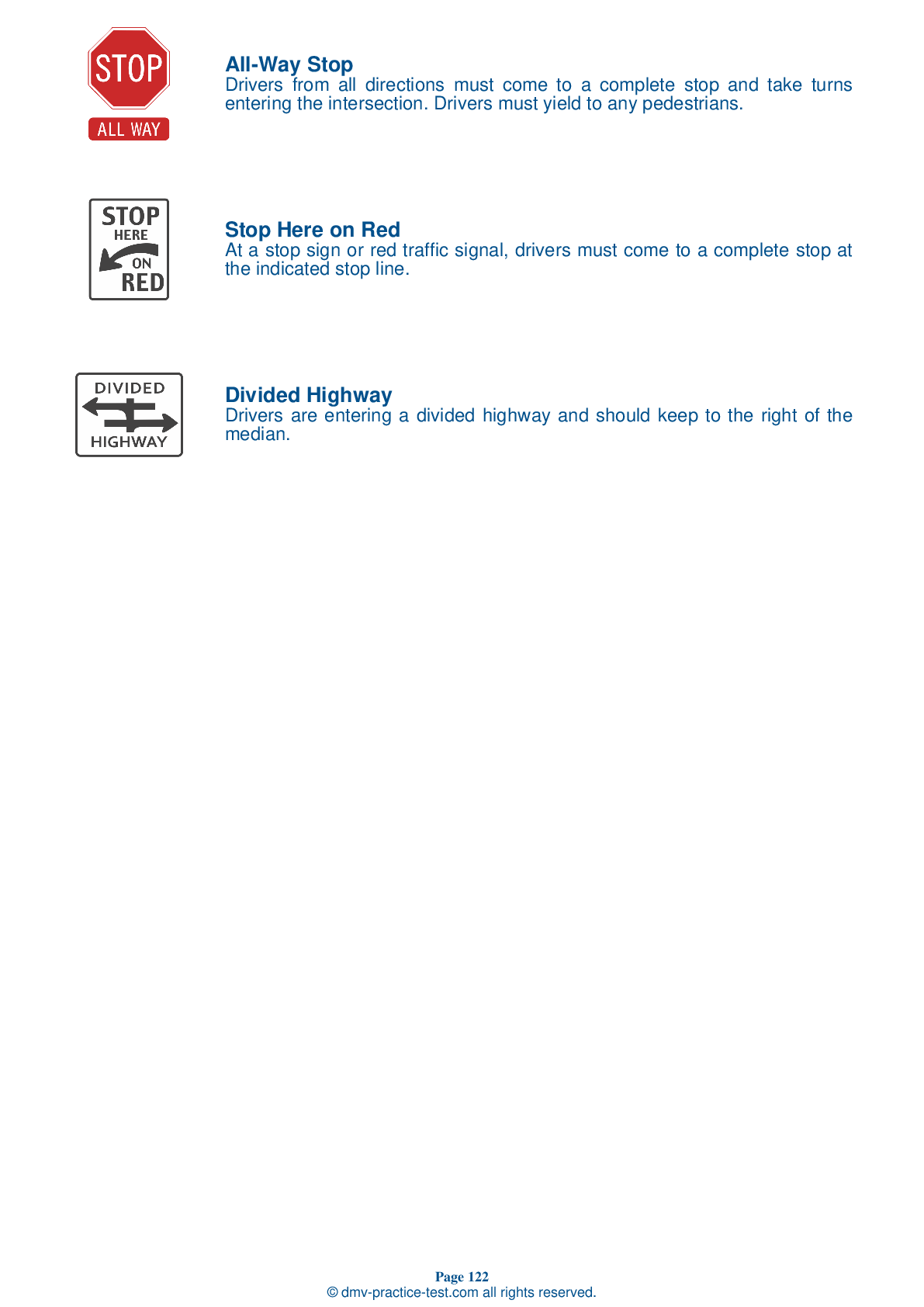Knowledge Test Class A #2
Class A Driving Test | Maine 2026 #2 Page 5 of 7
Train for FREE online with our Maine class A license test. The official exam test consists of several obligatory parts, with all of them checking your knowledge of different blocks of road rules. If you need to obtain a ME CDL class A permit in 2026, practice as much as possible. Free sample tests published on our website will help you check and improve your knowledge and boost your grades. Please bear in mind that CDL class A requirements may vary from state to state.
50
40
20
29 . Which of the following is not a sign of tire failure?
If you experience tire failure, you may hear the loud "bang" sound of a blowout or feel a heavy thumping or vibration in your vehicle. If steering begins to feel heavy, or if the rear of your vehicle begins to fishtail, you should stop to check your tires.
30 . The leakage rate for a single vehicle with air brakes should be no more than ____ in one minute during a static leakage test.
When performing a static leakage test on a single vehicle with air brakes, the leakage rate should be no more than 2 psi in a minute. If the air leaks from the air brake system at a quicker rate, the vehicle should not be driven because something likely needs to be repaired.
31 . When loading a trailer, it is important to:
When loading cargo, it is important that the weight placed on each axle is neither too little nor too much. Inappropriate loading can interfere with steering, create inadequate wheel traction, or damage the axles.
32 . Before a trip, you should make sure that:
When checking your vehicle's pedals during a pre-trip inspection, you should ensure that there is nothing under or around the pedals that will obstruct their use. Make sure the pedals are in proper working condition and that the surfaces of the pedals are grooved, if applicable.
33 . If the safety relief valve in the air brake system releases air:
An air brake system has a safety relief valve, which releases air from the tanks if the pressure gets too high. If the valve must operate, something in the system is wrong and should be addressed by a mechanic.
34 . A fatigued driver:
Fatigued drivers are slower to see or react to hazards than drivers who are not fatigued. Drivers are impaired in their ability to make critical decisions when they are driving drowsy.
35 . To ensure that you do not slow down traffic when driving a large truck, you should:
If a heavy load prevents your vehicle from keeping up with the speed of other traffic, you should stay in the right lane.
2026 Maine | Frequently Asked Questions
A CDL Class A license in Maine permits the holder to operate any combination of vehicles with a Gross Vehicle Weight Rating (GVWR) of 26,001 pounds or more, provided the towed vehicle is heavier than 10,000 pounds. This typically includes tractor-trailers, truck and trailer combinations, tank vehicles, livestock carriers, and flatbeds.
A Class A CDL license allows the holder to operate vehicles such as tractor-trailers, truck and trailer combinations, tanker vehicles, livestock carriers, and flatbeds. Essentially, it permits operation of any combination of vehicles with a Gross Vehicle Weight Rating (GVWR) of 26,001 pounds or more, where the towed vehicle is heavier than 10,000 pounds.
To obtain a Class A CDL license in Maine, you must be at least 21 years old (18 for intrastate driving), have a valid driver's license, pass a vision test, and complete a written knowledge test. You must also pass a skills test, which includes a pre-trip vehicle inspection, basic vehicle control, and on-road driving. Medical examinations may also be required.
In Maine, you must be at least 21 years old to qualify for a Class A CDL license for interstate driving. However, if you plan to operate only within the state (intrastate driving), you can obtain a Class A CDL license at 18 years old.
Endorsements for a Class A CDL license in Maine are not required but are available to allow drivers to operate specific types of vehicles. These include endorsements for tank vehicles (N), passenger vehicles (P), school buses (S), and hazardous materials (H). Each endorsement requires passing an additional knowledge test and, in some cases, a skills test.
The Class A CDL skills test in Maine includes three main components: a pre-trip vehicle inspection to assess your ability to assess the vehicle's safety, a basic vehicle control test to evaluate your ability to manage the vehicle, and an on-road driving test where you demonstrate practical driving skills in various traffic situations.
Yes, limitations can be imposed on Class A CDL license holders in Maine. These restrictions could be related to the driver's medical condition, the type of vehicle, or the cargo. For instance, drivers with certain medical conditions may be restricted from operating commercial vehicles unless they have a medical variance.
The written Class A CDL test in Maine is generally provided in English, as federal regulations require a basic understanding of English to operate commercial vehicles. However, some states may offer the test in Spanish or other languages. It's best to contact the Maine Bureau of Motor Vehicles directly for specific language accommodations.
Yes, accommodations can be requested for the Class A CDL written test in Maine if you have a disability. The Bureau of Motor Vehicles is committed to ensuring equal access to all of their services. You should contact your local BMV office in advance to discuss your specific needs and the possible accommodations they can provide.
Yes, if you don't pass the Class A CDL written test in Maine, you can retake it. However, there's a waiting period of one business day before you can try again. There's also a retesting fee that you'll need to pay each time. It's recommended to study thoroughly before reattempting the test.



